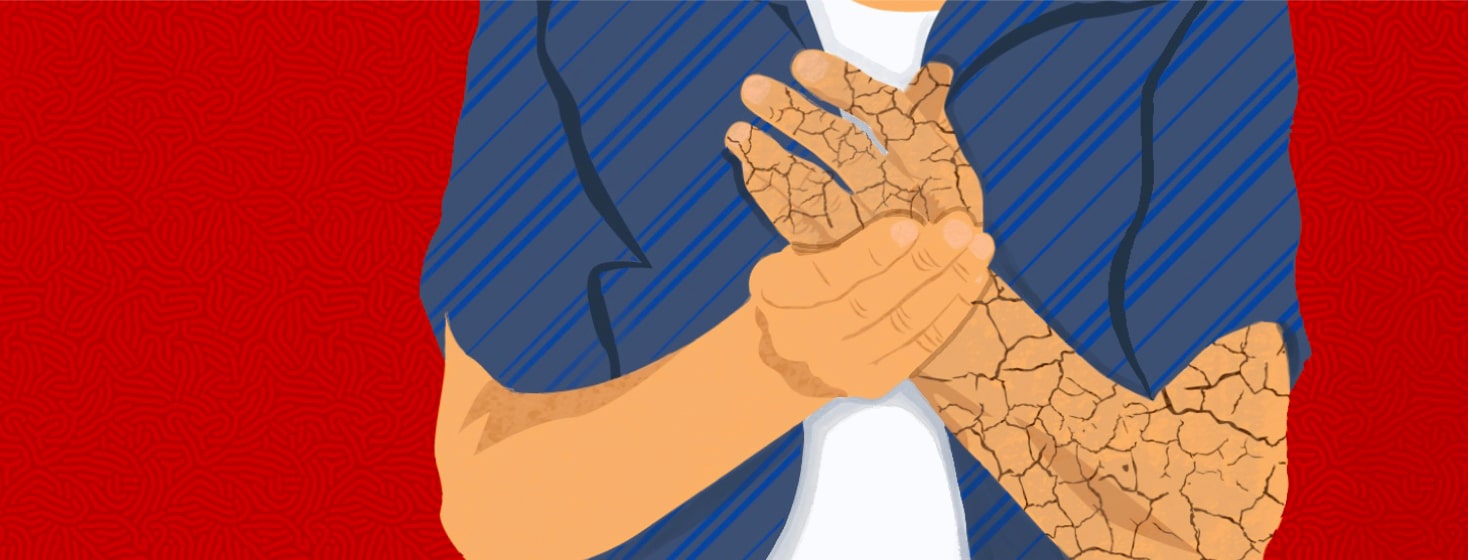The Many Ways Chronic Kidney Disease Affects the Skin
Reviewed by: HU Medical Review Board | Last reviewed: January 2023 | Last updated: January 2023
Chronic kidney disease (CKD) can affect the skin in many ways. In fact, skin problems are a common complaint among people with chronic kidney disease. These skin issues vary from person to person and can range from somewhat annoying to downright upsetting.1-3
Why does chronic kidney disease affect the skin?
The kidneys have the important job of cleaning your blood. They also help balance certain minerals, such as sodium and phosphate, in your body. But when your kidneys are not working properly, certain minerals can get out of balance. For example, high levels of phosphorus can cause dry, itchy skin.1-3
Featured Forum
View all responsesHow does CKD affect the skin?
CKD can affect the skin in a variety of ways. People with CKD commonly report having dry or itchy skin. They also may have other changes, including skin color and nail changes.1-4
Dry skin
One of the most common skin issues among people with chronic kidney disease is dry skin. The skin can get so dry that it can harden and crack. This results in rough, scaly patches.1-3
Itchy skin
Itchy skin caused by CKD is called pruritus, or chronic kidney disease-associated pruritus (CKD-aP). Pruritus commonly occurs on the arms, back, head, or belly.1-3
Pruritus is different from the itchiness of, say, a bug bite or a scratchy sweater. It creates a prickly feeling under the skin that does not go away from scratching. This itchiness can be extremely annoying and unpleasant. It often gets worse at night. Heat and stress have been shown to make itching worse.1-3
Pruritus is thought to be caused by:2,3
- High levels of phosphorus, aluminum, and magnesium in the body
- Buildup of toxins in the body
- Dry skin
- Reduced sweating (this is a common problem with people who are on dialysis)
- Too little dialysis
- Widespread inflammation
Itchy skin gets more common as kidney disease advances. About 60 percent of people on dialysis or living with end-stage kidney disease deal with itchy skin.2-4
Constant itchiness with no relief can greatly affect your quality of life. Research has linked pruritus with emotional problems like depression and anxiety. It even has linked pruritus to earlier death in 17 percent of people who are on hemodialysis.1-3
Other skin symptoms
When your kidneys are not working properly, waste and toxins build up in your body. This can lead to other skin problems, such as:1,2,5
- Color changes – Your skin tone may become more pale, gray, or yellow if toxins have built up in your body.
- Swelling – A buildup of water and salt in your body can lead to swelling in your legs, ankles, feet, hands, and/or face.
- Rashes – Small, dome-shaped rashes can be quite itchy and uncomfortable. These are more common in those who have end-stage kidney disease.
- Calcium deposits under the skin – This happens when your body’s calcium levels are out of balance. Calcium deposits tend to occur around a joint, like the elbow or knee. A more rare but serious and painful condition called calciphylaxis occurs when calcium builds up in blood vessels under the skin in fatty parts of the body. This can happen in people who are in kidney failure, are on dialysis, or have had a kidney transplant.
- Nail changes – In some people with CKD, the top half of their nails may be white while the bottom half is a reddish-brown color.
Featured Forum
View all responsesHow are skin problems with CKD treated?
Skin problems caused by CKD can be irritating, uncomfortable, and distressing. But there are ways to treat them. If you have chronic kidney disease and problems with your skin, talk with your doctor. They may refer you to a dermatologist, a doctor who specializes in skin issues.1-4
Dermatologists may prescribe topical creams and lotions to apply every day to add moisture to your skin. Or they may prescribe specific oral medicines to help with certain skin issues.1
Here are some things you can do to help manage your skin symptoms:1-4
- If you are on dialysis, ensure you are on the right dosage amount.
- Follow a kidney-friendly diet.
- Try to avoid scratching your skin, which only makes itching worse.
- When bathing, use lukewarm or cool water. Do not take hot showers, which can make dry, itchy skin worse.
- Try topical treatments such as menthol creams and capsaicin lotion. These can help calm and soothe the skin.
- Ask your doctor about phototherapy. This therapy is sometimes recommended for people with pruritus who have not responded to other therapies.
A drug called IV KORSUVA (difelikefalin) is approved by the US Food and Drug Administration (FDA) to treat moderate to severe pruritus. It is given at the same time as dialysis treatment. If you are living with pruritus, ask your doctor whether they recommend this drug to help manage your symptoms.2

Join the conversation